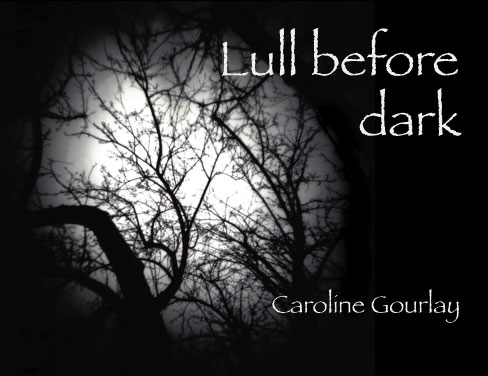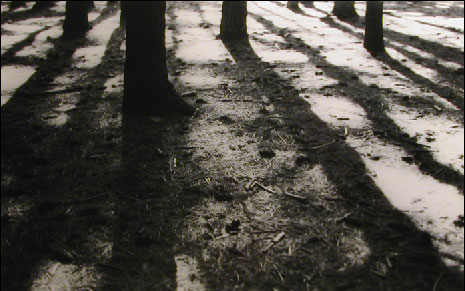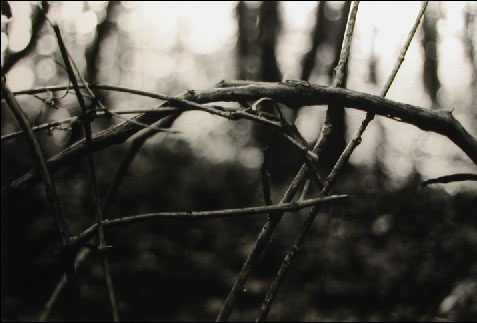Lull Before Dark:
|

ISBN: 1-929820-09-7 Brooks Books Email us about postage costs for Canada Or order this book by credit card online: Or download a PDF brochure: |
|
dawn departure . . . |
turning for home |
|
all those things |
again no word . . . |
|
Cover photo by Alida Duff, graphic design student, Millikin University. Additional photos by Laura Podeschi, graphic design student, Millikin University. Reader’s introduction by Maureen Ritter, an English education student, Millikin University. |
Caroline Gourlay lives with her husband on the Welsh Border and has written poetry for much of her life. She became involved with the haiku movement in 1994, joining the British Haiku Society that year and the Haiku Society of America somewhat later. She edited Blithe Spirit for three years from 1998-2000 and is a Patron of the Ledbury Poetry Festival in England. Her publications include Crossing The Field (Redlake Press, 1995), Through The Cafe Door (Snapshot Press, 2000), Reading All Night (Hub Press, 1999), Against the Odds (Hub Press, 2001) and This Country (Poetry Monthly Press, 2005). Her haiku and tanka have appeared in several journals and anthologies. She had five tanka among the winners of the 1997 Tanka Splendor Award and won the James Hackett Award for haiku in 1996. |
|
From the Reader's Introduction Haiku is the power of a few carefully chosen words to propel us into a heightened perception and understanding of the world we live in. Haiku may be defined as a simple, brief poem containing a seasonal reference and employing a crafty method of “cutting,” but anyone who truly knows and loves haiku will tell you that defining the techniques will never do justice to the essence of haiku. H.F. Noyes once said, “What is most vital is that we expose ourselves to the spirit of the art form” (The Loose Thread, page 135). With this spirit in mind, I encourage you to delve into the works of Caroline Gourlay, a celebrated British haiku poet and editor. Gourlay’s haiku instantly attracted me because of the range of experiences her work deals with and also the simple, beautiful language she employs. In her essay entitled, “Some Thoughts on the Writing of Haiku and Other Poems,” published in The Loose Thread (2001), Gourlay writes: “Every good haiku points to the here and now, whether it deals with a moment relating to nature or human nature, or successfully links the two—moments of intense awareness that can only be arrived at during those comparatively rare moments when we are truly living in the present” (page 123). It is these moments when the writer of the haiku must make decisions—conscious decisions—of what memories to keep and what memories to destroy. One cannot approach this type of poetry with a purely analytical eye. Analysis and critique have their place, certainly, but a reader must also surrender themselves to the beauty and simplicity that is haiku. Reading and appreciating Caroline Gourlay’s fine haiku has increased my love for this literary art form, not only the technique and elements of writing, but also the power encompassed in these simple lines. “A good haiku must demonstrate the only reality, which is the present,“says Gourlay, “and will come out of an awareness of the true nature of existence” (The Loose Thread, page 122). Gourlay’s haiku point us to that truth; her haiku are her eyes to the world, and we should thank her for the opportunity to see her reality. Maureen Ritter |
|
Special thanks to the editors and publishers of the following magazines, where many of these haiku originally appeared in print: Blithe Spirit, British Haiku Society Anthology “Flat”, British Haiku Society Anthology “Hidden”, Frogpond, Haiku Spirit, Modern Haiku, Noon, Presence, Simply Haiku, Snapshots Calendar 2005 Special thanks to Katherine Steimann, student editor from Millikin University, who helped review, arrange and design this chapbook as part of an internship with Brooks Books in the Spring of 2005. |
|

